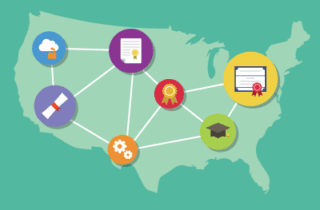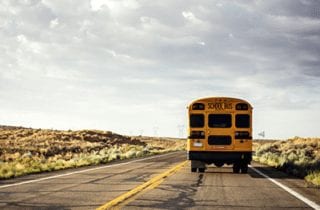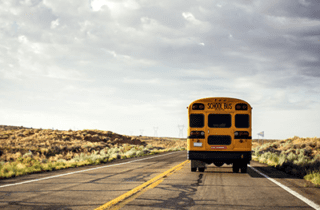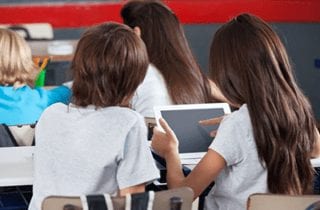What happens when a state has a professional learning mandate for teachers but no funding to offer them? Or taking any professional learning seminar requires hours of travel with no viable substitutes to cover the class? And what about adult learning in general, when the majority of workers in need are low income and marginalized?
Presented by Rosa Redonnett, Associate Vice Chancellor for Student Success and Credential Attainment, University of Maine System; Dr. Jennifer Carroll, Professional Learning Lead, Kentucky Valley Educational Cooperative; and Antonio Mabiala, Adult Learner and Micro-Credentials Earner
According to a CoSN report, more than half of school districts and about one-third of public schools in the United States are in rural areas. Rural communities have unique challenges, ranging from poverty and vast travel distances to a lack of affordable internet access.
Presented by Chad Johnson, Senior Education Specialist for Nebraska Public Power District, Co-Founder and CEO of Grain Weevil, and President and Founder of Youth Engaged in Technology and Innovation; and Ben Johnson, Chief Innovation Officer, Grain Weevil
Presented by Dr. Peter Aiken, Superintendent, Manheim Central School District (PA); Dr. Amy Carter, Superintendent, Meridian Public School District (MS); Dr. Matthew Dillon, Superintendent, Petal School District (MS); and Dan Leffingwell, Superintendent, Noble Local School District (OH)
Moderated by Ann McMullan, Project Director, EmpowerED Superintendent Initiative, CoSN (Consortium for School Networking)
The current crisis has highlighted the disparity between students with and without equitable access to technology, especially in rural schools. While most teachers are being asked to take their lessons directly to the students’ homes, many administrators know that the challenges in their district go beyond whether or not students have enough devices to do their classwork. During CoSN and ClassLink’s edWebinar, “Leading Digital Transformations in Rural School Districts,” the presenters talked about how the COVID-19 situation amplifies the obstacles rural schools face transitioning to a 21st century learning environment.
Join thie edWebinar to discuss the challenges and benefits of harnessing the human power of community to truly take the digital leap.
The goal of digital equity is to ensure that all students have access to devices, high-speed internet, and opportunities to learn both in school and out. While digital equity is a challenge for all school districts, Dr. Beth Holland, Digital Equity and Rural Project Director for the Consortium for School Networking (CoSN), points out that it becomes a very complex issue given the challenges within rural schools and systems. In a recent edWebinar, Holland along with Jennifer Austin, CETL, Instructional Technology Coordinator at Lac du Flambeau Public School in Wisconsin, Michael Flood, Vice President of Strategy at Kajeet, and Tammy Neil, Computer Science Teacher at Suwannee Middle School in Florida, discuss the unique challenges rural districts face when providing students’ online access to their education. Flood explained that when students don’t have equal access to devices and high-speed internet, it prevents them from having the same kinds of learning opportunities as their more connected peers.
In this edWebinar, these three leaders will discuss the ways that they have ensured the sustainability of the initiatives that they support.
Everyone has been to school and has their own image of what a classroom should look like. And depending on their background and experience, not everyone is supportive of tech-infused learning. Yet, 1:1 classrooms, BYOD, and tech-supported education are today’s reality. During the edWebinar, “Leading Digital Learning: Successful Strategies for 1:1 Implementations,” the presenters focused on how to get buy-in from within the school and across the community to improve chances for success and sustainability.









